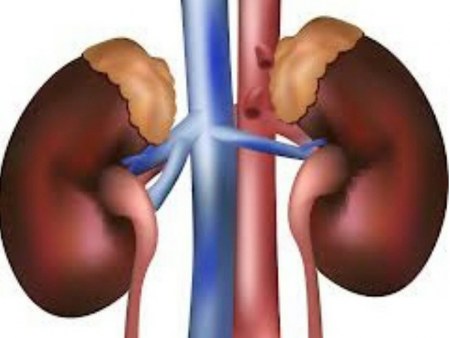First human kidney tissue capable of producing urine developed

Representative Image
London : In a first for medical science, scientists have successfully produced human kidney tissue within a living organism that is able to produce urine, a significant milestone in the development of treatment for kidney disease.
Using stem cells, scientists from the University of Manchester, created mini-kidneys that were implanted into mice. Tests revealed they were able to filter and excrete waste.
In the study, published in the journal Stem Cell Reports, kidney glomeruli — a constituent microscopic parts of the organ — were generated from human embryonic stem cells grown in plastic laboratory culture dishes.
These were combined with a gel like substance, which acted as natural connective tissue — and then injected as a tiny clump under the skin of mice.
After three months, an examination of the tissue revealed that nephrons — the microscopic structural and functional units of the kidney — had formed.
The new structures contained most of the constituent parts present in human nephrons — including proximal tubules, distal tubules, Bowman’s capsule and Loop of Henle.
Tiny human blood vessels — known as capillaries — had developed inside the mice which nourished the new kidney structures.
“We have proved beyond any doubt these structures function as kidney cells by filtering blood and producing urine — though we can’t yet say what percentage of function exists,” said Sue Kimber, Professor at the varsity.
“What is particularly exciting is that the structures are made of human cells which developed an excellent capillary blood supply, becoming linked to the vasculature of the mouse,”
“Though this structure was formed from several hundred glomeruli, and humans have about a million in their kidneys — this is clearly a major advance,” Kimber said.

However, the mini-kidneys lack a large artery, and without that, the organ’s function will only be a fraction of normal.
Thus, researchers are working with surgeons to put in an artery that will bring more blood the new kidney.
The results may help create working human kidneys for transplant in people with kidney disease.
Annually, 2.6 million people worldwide receive dialysis or kidney transplantation for end-stage kidney disease (ESKD), while around 2.2 million people with kidney disease die prematurely, unable to access treatment.
Kidney transplants are in short supply and an adult on long-term dialysis has an average life expectancy of barely a decade.
Therapies that prevent the progression of chronic kidney disease to end-stage kidney disease are therefore, urgently needed, the researchers said.
IANS




